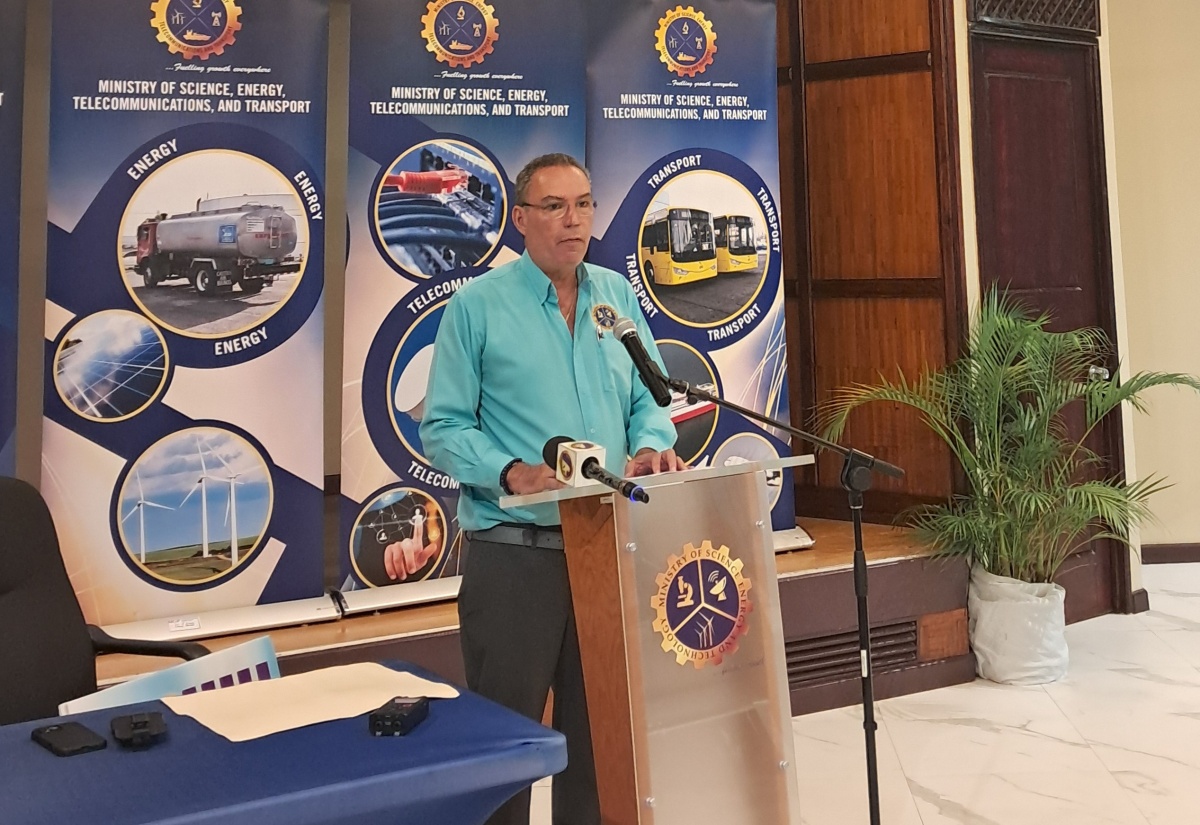Caption: Participants receiving hands-on training in electric vehicle maintenance and repair during an EV Training Programme facilitated by GSI SKN.
Basseterre, St. Kitts, 7th April 2025 – CARILEC, the leading association for electric utilities in the Caribbean, has partnered with Green Solutions International SKN Inc (GSI SKN) to deliver a cutting-edge Electric Vehicle (EV) Training Programme in St. Kitts from June 23 to July 4. This comprehensive training aims to equip professionals with the skills needed to work safely and effectively with electric and hybrid vehicles.
GSI SKN, a leading NGO driving clean energy growth and sustainability across the Caribbean, offers EV certifications from the Institute of the Motor Industry (IMI) in the UK and Technischer Überwachungsverein (TÜV) in Germany. The organisation partners with the IRENA SIDS Lighthouses Initiative, holds accreditation with the UNFCCC, and is the exclusive regional partner for the North American Board of Certified Energy Practitioners (NABCEP). With a strong track record in renewable energy and e-mobility, GSI SKN has successfully delivered consulting, training, and certification projects across the Caribbean, including in Guyana, Jamaica, Barbados, Bermuda, and St. Kitts & Nevis.
Dr Wayne Archibald, Executive Director at GSI SKN, will also contribute his expertise as a featured speaker at the upcoming Eastern Caribbean Central Bank (ECCB) 9th Annual Growth and Resilience Dialogue, taking place from April 10 to 11, 2025. His participation reflects the regional recognition of GSI SKN’s leadership in clean energy and sustainable mobility.
Accelerating the Caribbean’s Shift to Electric Vehicles
The Caribbean region is increasingly adopting electric vehicles (EVs), driven by government incentives, environmental concerns, and economic opportunities. Barbados leads in per capita EV usage in the region, with over 600 EVs on the road and more than 100 charging stations (2023). Jamaica has also made significant strides, setting a goal to have 10% of its transportation powered by EVs by 2030 and introducing electric buses into its public transit system. These efforts align with regional strategies, such as the CARICOM Regional Electric Vehicle Strategy (REVS), which aims to transform transportation systems and promote sustainable mobility across the Caribbean. St. Kitts and Nevis is also advancing electric vehicle (EV) adoption through a government-led initiative focused on EV maintenance training and policies to promote sustainability. The island’s compact size makes EVs an ideal solution for local transportation, with several EV charging stations already installed to support the growing number of electric vehicles on the road.
Preparing the Caribbean for the EV Revolution
This training is a vital step toward ensuring that regional professionals are equipped with the necessary technical and safety skills to handle EV systems. As governments and private sector entities increase their investments in electric vehicle infrastructure, trained specialists will be essential to maintaining and expanding this rapidly growing industry.
Dr Archibald, Executive Director at GSI SKN and a key advocate for green energy and sustainable development in the Caribbean, emphasised the significance of this training: “The adoption of electric vehicle technology is a crucial component of the Caribbean’s transition to a sustainable energy future. By providing professionals with hands-on training and internationally recognised certifications, we are not only advancing technical expertise but also fostering a culture of innovation and resilience in the region.”
World-Class EV Training for the Caribbean
The EV Training Programme is certified by IMI and TÜV, ensuring world-class accreditation and technical proficiency. Participants will gain hands-on expertise in EV maintenance, repair, and diagnostics, with courses designed to cater to a broad spectrum of professionals, including auto technicians, fleet operators, engineers, compliance officers, and safety professionals. Participants will benefit from the IMI certification, which ensures that auto professionals receive industry-standard training, and the TÜV certification, recognised globally for safety and compliance in engineering.
Participant Testimonials
Past participants have found the training to be highly relevant and beneficial. Devlin Connor, Vehicle Superintendent with the Government of Anguilla’s Vehicles Department, shared his experience:
“This training course was incredibly valuable and came at a critical time, as electric vehicles represent the future of transportation. It was essential for us to have the opportunity to attend, gain insights, and receive hands-on training in EV operation and safety practices. This knowledge will enable us to be better prepared to manage the challenges and opportunities that arise from the adoption of EVs.”
Vince Archibald, Technician, Automotive Division, Clarence Fiztroy Bryant College, reflected on the significance of the training: “This training was an eye-opening experience, providing hands-on expertise and a deeper understanding of EV technology. The programme was not only highly beneficial but also innovative, equipping us with the latest industry knowledge and best practices. As the automotive industry transitions to greener technologies, this kind of specialised training is essential for keeping professionals ahead of the curve.”
Expert-Led Training
The training will be facilitated by Andy Latham, a globally recognised expert in electric and hybrid vehicle technology, with an extensive career spanning senior management roles in the automotive sector. As a Fellow of the Institute of the Motor Industry (FIMI) and an Incorporated Engineer with the Engineering Council UK, Latham will provide participants with a world-class learning experience.
How to Register
Contact training@carilec.org or slprimus@carilec.org, provide your organisation’s name, the number of participants and contact details. For further inquiries, call +1 (758) 717 9577.


 Businessuite Markets4 weeks ago
Businessuite Markets4 weeks ago
 Businessuite News241 week ago
Businessuite News241 week ago
 Leadership Conversations4 weeks ago
Leadership Conversations4 weeks ago
 Businessuite News243 days ago
Businessuite News243 days ago
 Corporate Feature1 week ago
Corporate Feature1 week ago
 Businessuite News24 International1 week ago
Businessuite News24 International1 week ago
 Businessuite Women2 weeks ago
Businessuite Women2 weeks ago
 Business Insights4 weeks ago
Business Insights4 weeks ago






















